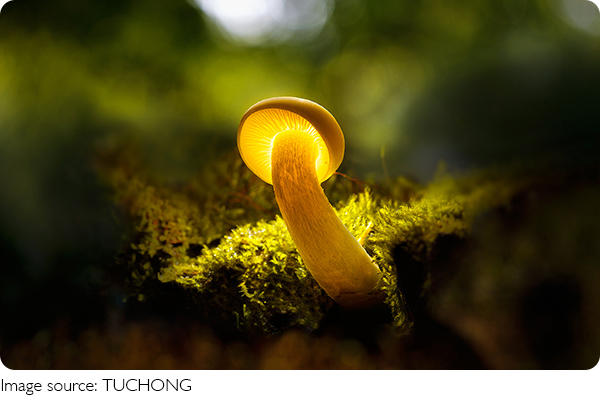Mushroom's Eco Partnership

Mushrooms are an important part of nature, and they are inseparable from the soil.
As a fungus, mushrooms are different from plants. They do not photosynthesize but rely on nutrients and organic matter in the soil to grow.
The growth environment and process of mushrooms is not just a simple ecological phenomenon, but also an important part of biodiversity and ecological balance.
Soil provides the basis for mushrooms to grow, especially soil rich in organic matter, which is most suitable for mushroom growth. The texture, moisture, pH, and temperature of the soil will affect the growth process of mushrooms.
Generally speaking, mushrooms need humus-rich soil, which contains a large amount of organic matter and provides the nutrient source required by mushrooms.
Humus mainly comes from the remains of animals and plants, which are decomposed by microorganisms to form organic matter rich in nutrients such as nitrogen, phosphorus, and potassium.
Mushrooms obtain energy and nutrients by decomposing these organic substances, which is very different from the process of plants absorbing minerals from the soil through their roots.
The growth process of mushrooms is divided into several stages, the most important of which is the growth of mycelium. Mycelium is the main nutrient absorption structure of mushrooms, which absorbs nutrients and water by expanding the mycelium network in the soil.
Mycelium is made up of long, thin cells that penetrate organic matter in the soil, breaking it down into smaller molecules that can be absorbed by the mushrooms.
The rate and extent of mycelium growth determines how fast the mushrooms grow. A healthy soil environment, especially one with good aeration and drainage, promotes the expansion of mycelium.
Soil moisture is particularly important for mushroom growth. Mushrooms prefer a moist environment, but too much moisture can cause the soil to lack oxygen, inhibiting the growth of mycelium. Therefore, the soil must be well-drained to maintain the appropriate moisture level.
Too dry soil can cause mycelium to dehydrate, inhibiting its growth. Similarly, too-wet soil can cause mycelium to lack oxygen, which in turn affects the growth and reproduction of mushrooms.
Moderate moisture and good aeration can keep the microorganisms in the soil active, which is also very important for mushroom growth because these microorganisms help break down organic matter and provide nutrients for mushrooms.

The pH of the soil also affects the growth of mushrooms. Most mushrooms prefer slightly acidic or neutral soils, with a pH of 5.5 to 7.5. Soil that is too acidic or alkaline will inhibit the growth of mycelium and affect the development of mushrooms.
pH regulation can be achieved by adding organic fertilizers or lime, which can balance the pH in the soil and provide a more suitable growth environment.
In addition to the physical and chemical properties of the soil itself, the microbial community in the soil is also one of the important factors for mushroom growth.
There are a large number of bacteria, fungi, and other microorganisms in the soil, which form a complex and mutually beneficial relationship with mushrooms.
Many mushrooms rely on these microorganisms to help decompose organic matter, and the microorganisms also obtain nutrients from the metabolites of the mushrooms.
For example, some fungi form a symbiotic relationship with plant roots, and they help each other grow better by exchanging nutrients with plant roots. Such symbiotic relationships are essential to the health and stability of forest ecosystems.
Not only do mushrooms rely on soil to grow, but they also have a positive impact on the soil during their growth. The ability of mushrooms to decompose organic matter helps to form soil and improve its fertility.
Mycelium can break down complex organic matter into simple compounds used by plants and other organisms. This process not only increases the nutrient content in the soil but also promotes the formation of soil structure, making it more suitable for plant growth.
In addition, mushrooms can also transport water and nutrients to the surrounding plant roots through their underground networks, which is of great significance for the survival of plants in harsh environments.
The growth of mushrooms is closely related to the soil. A suitable soil environment, including rich organic matter, moderate humidity and pH, good aeration, and diverse microbial communities, are key factors in promoting mushroom growth.
At the same time, the growth of mushrooms also affects the structure and fertility of the soil in turn, and is an important part of the material cycle in nature.
By maintaining soil health, humans can better utilize mushrooms as a natural resource and promote sustainable agricultural development and ecological environmental protection.

 · Plant Team
· Plant Team